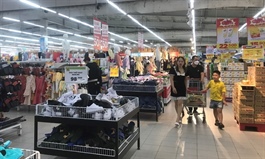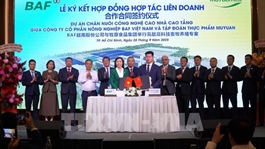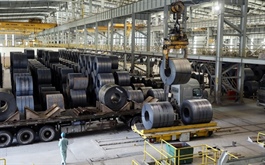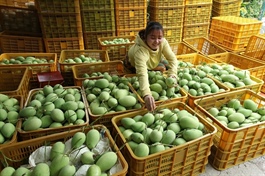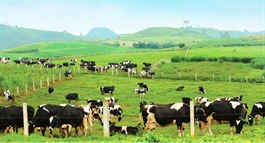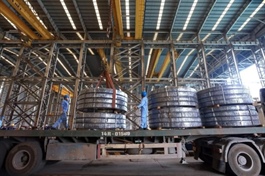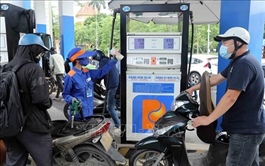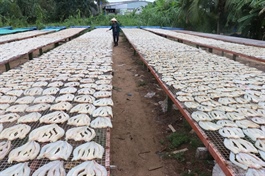Domestic sugar industry faces pressure from imports of corn-based liquid sugar
Domestic sugar industry faces pressure from imports of corn-based liquid sugar
Analysts noted in September 2025 that sugar imports into Việt Nam had increased, with trading activity improving compared to previous periods.
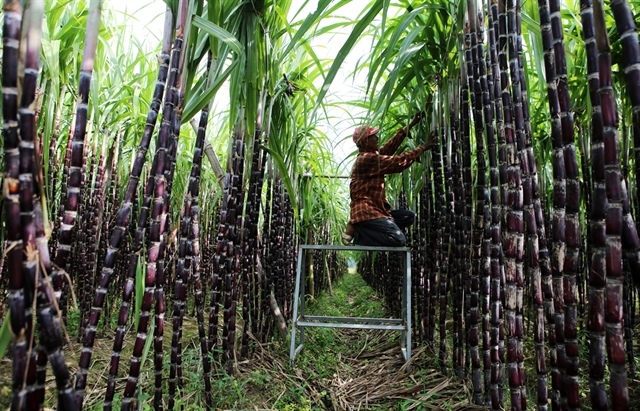
Farmers at a sugar plantation in Huế. VNA/VNS Photo |
A surge of imported corn-based liquid sugar (HFCS), widely used in beverages and processed foods, is emerging as a serious new threat to Việt Nam’s sugar sector.
In just the first seven months of 2025, Việt Nam imported 126,024 tonnes of HFCS, following 241,504 tonnes in 2024. Analysts warn this cheaper, versatile sweetener could undercut domestic cane sugar more deeply than traditional smuggled sugar.
Việt Nam’s sugar industry is already facing a bitter season, as rising inventories, sluggish sales, declining prices and high production costs squeeze domestic producers. The pressure is compounded by weak competitiveness and an influx of imported and smuggled sugar, a stark reminder for Vietnamese agricultural sectors of the need for effective solutions to boost output and maintain domestic advantages, industry insiders say.
Analysts reported in September 2025 that sugar imports into Việt Nam had risen, with trading activity improving compared with previous periods. Yet global sugar prices continued to slide due to an oversupply in international markets.
Domestic consumption remains weak, partly because of high levels of smuggled sugar, creating significant inventory pressure for local producers. With a short turnover cycle, sugar mills have been forced to accelerate stock clearance, directly pushing down domestic prices.
Industry estimates suggest that the average sugar price in 2025 will fall to VNĐ17.5 million per tonne, down 5 per cent year-on-year, recovering only to VNĐ17.9 million per tonne by 2027—still below the peak levels recorded between 2022 and 2024.
Mirae Asset Securities analysts described the sector as entering a challenging phase, with selling prices under continued pressure. The Vietnam Sugar Association (VSA) reported that consumption is lagging behind production, pushing white sugar prices to VNĐ17,400–18,200 per kilo and refined sugar to VNĐ19,500 per kilo, down VNĐ2,000 per kilo year-on-year. Meanwhile, high input cane costs of VNĐ1.2–1.3 million per tonne, accounting for 85 per cent of production costs, have intensified financial strain.
Current inventory levels far exceed sustainable trajectories due to weak demand and post-2022–2024 price declines, squeezing profit margins for domestic producers.
A fundamental challenge lies in competitiveness. Domestically produced sugar is 39 per cent more expensive than global prices, largely because of government protectionist measures including trade defence tariffs, anti-dumping regulations and anti-subsidy duties.
In response to the escalating pressures, the Prime Minister directed the Ministry of Agriculture and Environment to urgently assess production, consumption, inventory levels and the impact of smuggled sugar, proposing effective control measures to stabilise the market and support sustainable operations for sugar companies.
The struggles of the sugar industry reflect wider challenges facing Vietnamese agricultural products, highlighting the need for comprehensive solutions to overcome barriers and leverage domestic advantages.
The Department of Quality, Processing and Market Development (Ministry of Agriculture and Environment) emphasised the need to reduce logistics costs, streamline administrative procedures and cut fees to ease burdens on businesses and farmers.
- 08:52 29/09/2025



